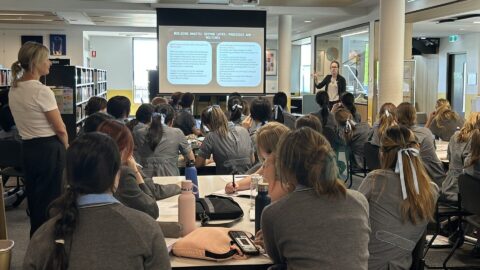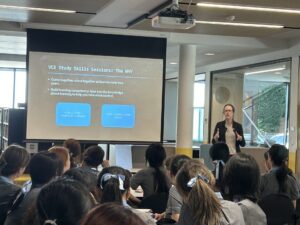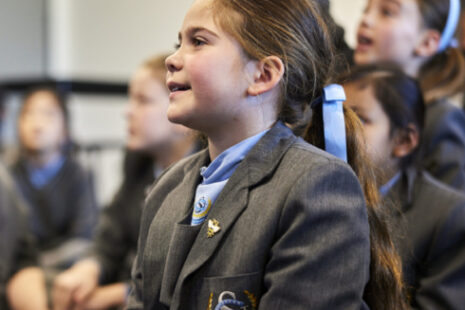Developing Effective Study Habits

Over the past three years as part of St Catherine’s School’s focus on The Thinking Classroom and academic care, we have run a series of seminars for Senior School students focused on developing effective study habits, skills and dispositions. These longer sessions are designed to support the work of Form Tutors as part of the Academic Advisory Program.
The seminars are designed to assist students at their point of need at specific stages of the year. To that end, the initial sessions focus on broad study skills that focus on learning how to learn, whilst the Semester 2 sessions deal specifically with the skill set required for examination revision.
There is a well-established correlation between metacognitive abilities and academic success. The advice provided to students is evidence-informed, drawing from the Science of Learning. Below is a synthesised explanation of the focus for each Year level:
Effective Study Habits
Both the Years 11 and 12 sessions provided an explanation of effective study habits. Often students adopt habits that provide the ‘illusion of learning’ but are largely ineffective. These include habits such as copying textbooks verbatim as notes, only building familiarity with subject matter in class times, or multi-tasking. In contrast, students were informed to adopt the following key habits:
Key Study Habits:
- Do not go in cold. Pre-learning content (through reading and viewing) reduces the student’s cognitive load in class and allows them to build more complex connections.
- Learning science strategies: retrieval practice, spaced practice, and interleaving. Developing mechanisms for constant information retrieval and spacing practice over time enables students to move new information into long-term memory. This approach contrasts with cramming which stresses short-term memory.
- Create your own notes. Students should use a system (such as Cornell Notes) to create their own notes, using summarising strategies and dual coding to organise information in a manner that reflects their understanding.
- Build understanding: elaboration and concrete examples. Constantly explaining and elaborating on topics with concrete examples of concepts is a proven way of building strong knowledge maps.
- Focus on improvement: deliberate practice. Students need to respond to feedback by taking productive measures to improve between tasks, by adopting the ‘next steps’ advised by their teacher. This kind of deliberate practice is distinct from regular practice, where the student does the same thing without an improvement goal.
Self-Regulation
Knowledge of effective strategies is not sufficient for building learning competencies. Therefore, the second part of each session focused on self-regulation to assist students in developing the right mindset to study effectively.
Year 12: Attentional Control
The Year 12 session addressed a common issue for senior students, which is the fragmentation of their attention by the competing demands of the final year of school. The metacognitive skill of attentional control encourages students to:
- Recognise where their attention is currently being directed, by pointing out common sources of distraction.
- Take steps to manage their attention in order to concentrate, such as studying in a ‘laser-focused’ manner in 50-minute intervals, turning off notifications on computer or phone apps, cutting the noise of ‘VCE talk’, and supporting each other by respecting the distraction-free spaces at School.
Year 11: Atomic Habits
The Year 11 session offered a synthesis of James Clear’s influential book Atomic Habits, which offers advice on how to effectively build positive habits. Key tips included:
- Linking the habit to your identity (rather than external outcomes) which taps into intrinsic motivation.
- Applying the two-minute rule to implement a new habit.
- Chunking the habit into steps.
- Changing the environment to cue the habit.






